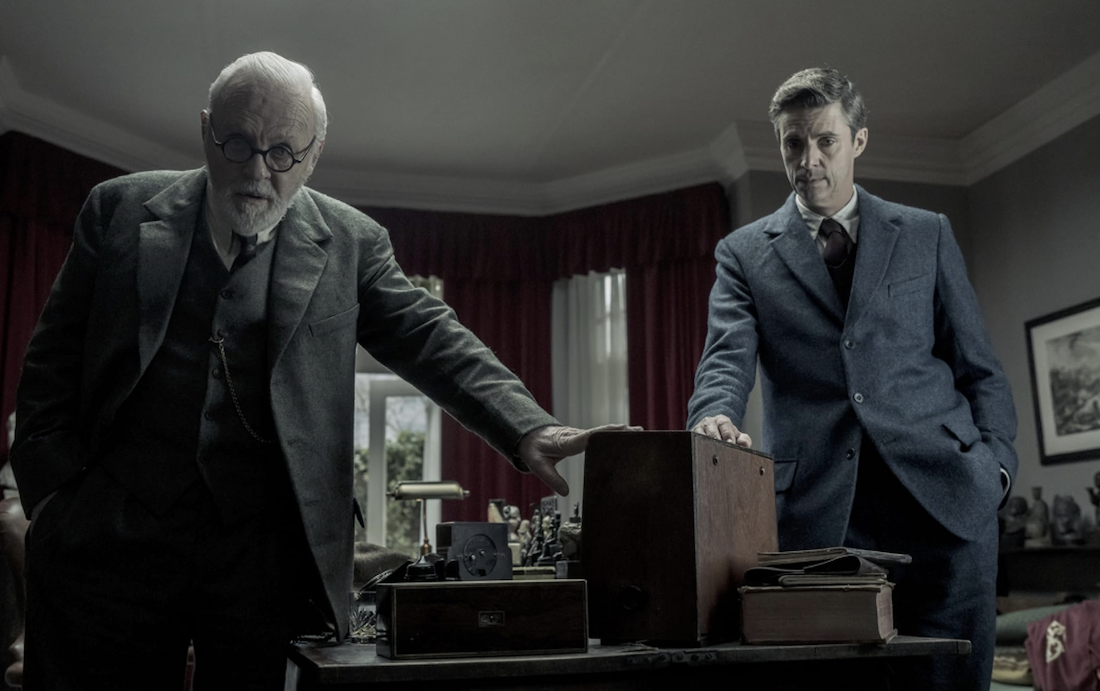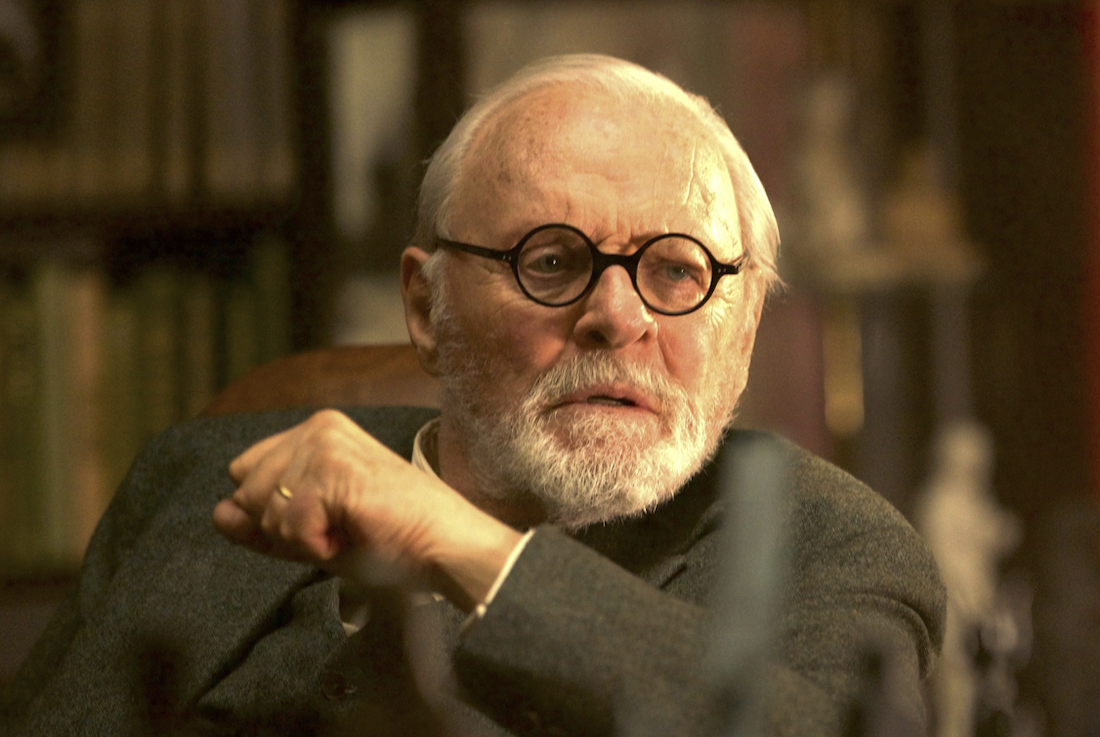Writer/Director Matt Brown: From a ‘Fun’ Start to Freud’s Last Session
December 21, 2023
It was a scratch-off lottery ticket and a stolen car, oddly enough, that set Matt Brown on the path to becoming a writer-director.
Brown – whose film Freud’s Last Session opens on December 22 – was finishing up college in Boston, double majoring in English and political science, when he decided to take a screenwriting class in his last semester. He loved it.
“[At the time] I watched two movies a day,” Brown, 47, recalls. “But it had never occurred to me that you could actually write for film and get paid to do it.”
Read More: Final Draft's Series 'The Bricks of Breaking In'
After graduation, the screenwriting instructor suggested Brown enter the New York University summer film program. The problem was, he didn’t have the money for it. But fate intervened. Brown won $2,000 on the lottery ticket. Then, the same week, his car was stolen. The insurance money totaled about $6,000.
With cash in hand, Brown headed south to NYC.
“We were cutting on Steenbecks, shooting on 16 millimeter,” he says. “All of my classmates were working on each other’s short films. I was just like, ‘This is the most fun I’ve ever had in my life.’”
Heading to Hollywood
Brown eventually made the jump to Hollywood and found steady work as a screenwriter through the 2010s. And, he says, “I eventually learned what development hell was, and I got back to wanting to write things I care about and want to make.”
The result: 2015’s The Man Who Knew Infinity, which he wrote and directed. Starring Dev Patel and Jeremy Irons, it tells the story of pioneering Indian mathematician Srinivasa Ramanujan.
Now, in Freud’s Last Session, starring Sir Anthony Hopkins and Matthew Goode, Brown’s taking on two larger-than-life historic figures. Set in London just as Great Britain declares war on Germany in 1939, the film imagines a meeting between famed, aging psychoanalyst (and noted atheist) Sigmund Freud and The Chronicles of Narnia author (and noted Christian) C.S. Lewis.
The topic of discussion: Does God exist? And if so, why does He allow all these terrible things to happen?
Adapting the Adapted
The script is adapted by Brown and Mark St. Germain from St. Germain’s play of the same title. The play itself was based on a series of Harvard lectures-turned-book, The Question of God, by Armand Nicholi that compares the philosophical arguments of Freud and Lewis.

For Brown, the development process of the film has been a seven-year journey. Much of it was spent working with St. Germain on collectively transforming the play into a film – a collaboration during which Brown took “the 20,000-foot-view” of the director, but then also zoomed in on the story as a co-writer.
“We had all the discussions of getting it changed from two men in a room to something more cinematic and how we would go about doing that,” Brown says.
Read More: How to Write an Adaptation
Brown has done other adaptation work in his career – he’s currently working to bring to the screen Little Princes: One Man's Promise to Bring Home the Lost Children of Nepal by Conor Grennan. He says screenwriters who adapt works should “have the courage” to take ownership of their vision.
“Let your intuition drive you where it needs to go and have faith that it’s the movie you want to make,” he says. “There’s always other voices in the room, whether it's a producer or a studio or whatever it might be. But I think you have to listen to your intuition and you have to be able to let go of what something was and give yourself the freedom to” make it what you want it to be.
Working With Sir Tony
Once the script was in good shape and pre-production began, a second “adaptation” took place when Brown started working with Oscar-winner Hopkins. Together, they spent about a year developing Hopkins' interpretation of Freud in all his cigar-smoking, caustic, playful, brilliant, dying glory.

“It’s intimidating, you know,” Brown says of working with Hopkins. “He’s Sir Anthony Hopkins. But then he immediately breaks that down in about five minutes. And then it’s ‘Tony’ forevermore.
“He brought a lifetime to the role, quite literally,” Brown says. “He looked at the project through his own mortality. It was incredible to be let behind the curtain on all of his life’s experiences as he was developing it.”
In the film, Freud and Lewis both spend time coming to terms – or avoiding – the traumatic and life-altering circumstances of their lives. Freud’s attachment to his daughter, Anna, is put under the microscope.
And Lewis was an avowed atheist when he served time on the Western Front of World War I. During one battle, Lewis was wounded and two of his colleagues killed -- which only further solidified his defense of atheism. But years later, a 1931 now-famous conversation with friend and fellow novelist J.R.R. Tolkien led Lewis to accept and embrace Christianity. (More about that here.)
“Because it is a fictional story,” Brown says, “Tony encouraged me to lean more into the dreamlike elements of the script.”
Patience and Perseverance
So, after more than 20 years in the business, what has Brown learned – aside from use your lottery winnings wisely...?
“Patience and perseverance,” he says. “Screenwriting is an art form unto itself. It’s a special kind of writing you have to hone and get better at over time.
“You do this because you love it at the end of the day. And if you love it and need to do it, then do it. But if you’re doing it for any other reason just save yourself the trouble. It’s too hard.”
Written by: Jamie Allen
Jamie Allen is a writer based in Los Angeles. He's the creator of the Squirrel Census, a science, design, and storytelling project that was featured in The New York Times and other outlets.- Topics:
- Industry Interviews & Spotlights



